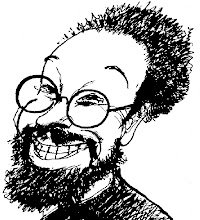When "The Express"--a movie about Ernie Davis, the first black college football player to win the Heisman--came out last year, I started to wonder why so many movies about black athletes as agents of integration, and so few about the heroes of the Civil Rights Movement. It was the third movie in three years to present the fight for equality as a struggle by black athletes to be accepted on the playing field.
It was as if Hollywood had taken literally legendary Alabama football coach Bear Bryant's response after a black player--the University of Southern California's Sam Cunningham--ran for 221 yards and scored three touchdowns to help defeat Alabama 42-21 in 1970.
"Cunningham," Bryant said, perhaps apocryphally, "did more for integration in Alabama in 60 minutes than Martin Luther King did in 20 years."
Bryant turned out to be right, at least in the movies.
Problem is there hasn't been the cinematic equivalent of Richard Attenborough's "Ghandi" about Martin Luther King--or full-length pictures about Thurgood Marshall, Fannie Lou Hamer, Violet Liuzzo, James Chaney, Andrew Goodman, and Michael Schwerner (if you don't know who these people were, go Google their names)
The thing is though Davis' is an inspiring story, the movie about him never strays from the conventions of the sports biopic. And, like "Remember the Titans," it's not really about the black character, who's pretty much the same throughout the movie. It's about the white character--the coach in "The Express"; an assistant coach in "Titans"--who moves from racism to acceptance.
Maybe I shouldn't be so surprised the movies prefer to look at race through sports' rose-colored lens. We're a sports-obsessed nation. Dads want their sons to grow up to become Alex Rodriguez instead of Bill Gates and boxing, football, and baseball provide metaphors for everything from business to presidential debates.
Then, too, sports offers the kinds of clear-cut distinctions we seldom get in real life. Games are refereed by impartial observers. Everyone plays on the same field. The best team and the best players usually win.
Go check out the stories of some of the people I mention earlier. Many died so that others might be free, but while there is much that is affirming in their lives, any honest depiction of the racism and brutality they felt would leave audiences with nothing to feel good about.
Bear Bryant may have been right that sports did more to integrate America than Martin Luther King did. All the same, I can't help thinking of something a friend once told me about his father-in-law, something that shows the limits of believing what happens on the playing field will somehow change America at large.
The father-in-law, a white Southerner who so opposed his daughter marriage to a black man he's never seen his grandchildren, sat down one Saturday afternoon to watch his beloved University of North Carolina football team on television.
"Now we're gonna see," he said, "if our niggers can beat theirs."
Wednesday, January 14, 2009
Subscribe to:
Post Comments (Atom)

No comments:
Post a Comment